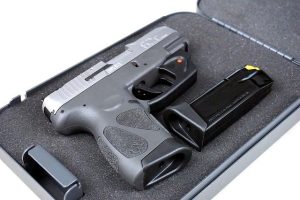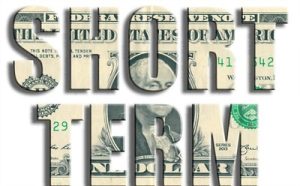Pawning A Gun
When you are needing hundreds of dollars, unexpectedly, pawning a gun can be a means that will accomplish that goal. Not only will it put the cash you need in your hands quickly, you don’t have to completely sacrifice your firearm to do so. Although, the offer for selling a firearm, rather than pawning, does offer more. But, with pawning, you receive your firearm back, when the loan is paid in full. The offer that you receive to pawn or sell your gun, is a variable that depends on the pawn shop itself. Therefore, it is important to know who offers the most when pawning a gun, and the interest rates that they charge.
It is important to know what what to expect when pawning a gun, and to be well informed whenever you are seeking a loan of any kind. And, you will know what can influence a loan’s amount, and its interest rates. Let’s discuss the process and tips that will help you meet your cash goal.
Presentation When Pawning A Gun
Your gun does not have to look brand new to get a decent amount of cash. But it is important for it to look well maintained. Therefore, you are going to want to present it in its best condition possible. So, definitely take the time to clean your gun, and gather everything that it came with at the time of purchase. In addition, if you still have the case that it came in, place it in the case before you bring it to the pawn shop.
When your pawning your gun, bring any and all receipts that you still have. This includes any upgrades to your gun, or if you’ve had your gun customized. This allows you to show that your firearm holds more value or equity, than the average gun of the same make and model.
Do Some Homework Before You Go
The thing to remember, is that the amount you are offered, is not based on the retail value of the gun. Rather, the offer you will receive when pawning a gun will be based on the current market value, aka the resale value of the gun. And, the present value of a used firearm can easily be found by referring to gunbroker.com, and look up the make and model of your firearm. You’ll want to compare two or three different listings, and take into consideration the asking prices of the guns, and their condition.
Negotiating When Pawning A Gun
Obviously, the offer you receive is contingent on it’s overall value. But, when you’re pawning a gun, the offer you receive is only going to be a percentage of that said value. Depending on the pawn shop you choose, the percentage can vary from 40% to 75% of the gun’s value, to be the offer you receive. However, the offer you first receive is going to have room for you to negotiate with the pawnbroker. Thus, allowing you to have some say about the final offer agreed upon.
So consequently, the two tips above can give you more leverage with the pawnbroker to increase your offer. And, thereby, proving that preparation is the key to ensuring the best possible offer, and perhaps lessen the interest rates.
Things To Consider When You Pawn A Gun
The most important thing to understand about pawn loans, is that they are short-term, collateral loans. Which means, they are best to be sought if your lack of cash is only a temporary situation. In addition, that paying back the loan, including the interest accrued, is not going to cause you financial distress in doing so. So consequently, if that is a concern, ask what the selling offer is. Then take a moment to compare the difference in the offers, and do what is best for your personal circumstances.
The choice is completely up to you to sell, pawn, or take your firearm and accessories back, and exit the store. The pawnbroker can discuss the options with you, but they cannot persuade you one way or the other.
A huge advantage of a pawn loan is, they are completely confidential, and are never reflected on your credit score. Nor do they require a credit check, to verify employment or need proof of income. However, if you have a good credit score, you can wager that in, to either raise your offer, lessen the interest rates, or both, when pawning a gun. Anything that you have to elevate your offer, and / or lower your interest rates
Laws To Buy, Sell Or Pawning A Gun
- You must be a minimum of 18 years old, to buy, sell or pawn a rifle or a shotgun. To buy, sell or pawn a handgun, you must be a minimum of 21 years old. You are required provide a current and valid Driver’s License or State ID, to verify your age, and identity.
- All pawn shops in Arizona are required to collaborate with its county’s Sheriff’s Department, by turning in receipts of all items it buys and pawns for cash. This is to ensure that they are not accepting stolen valuables. If stolen merchandise is received, the police department contacts the pawn shop, and the property is handed over to the authorities.
- Any pawn shops that partake in buying, selling or pawning a gun, accessories, and ammo must be a Federal Firearms Licensee. In addition, they must abide by all laws and regulations, in accordance with the Federal Bureau of Alcohol, Tobacco and Firearms, along with all pawn shop regulations and state laws.
- Pawn shops are required to run background checks on potential gun buyers, and verify that they are approved to receive the firearm, before the sale of the gun is finalized. Once the clearance is received, the gun is legally transferred to its new owner, and the transaction is completed.
Pawn shop lending is regulated by both law enforcement, and the laws passed through legislation. There are state laws in place, that do place limitations on interest rates that can be charged, as well as the length of the loans themselves.
Pawn shops are an alternative to traditional lenders, such as banks or credit unions. When you are pawning a gun, you are securing an amount to be lent, utilizing the equity your firearm holds. And by using your gun as collateral, you are providing the pawnbroker some security that the loan has been given in good faith.
Although, the loan is contingent on it being paid within the timeframe of the contract. Or, at least, paying the interest accrued on the loan, to thereby, rewrite the loan for another 90 days. Whether the loan is paid in full, extended, or the loan is defaulted, they will have the ability to recoup their losses, nonetheless. Because if the loan is defaulted, and you do not reach out to the pawn shop, the collateral used to get the loan, becomes the store’s property, and they will put it on display to be sold. But, 75% – 80% of all pawn loans are paid in full, with the customer having their property back in their possession.
Pawning a gun, jewelry, diamonds or tools is not for everyone. And yet, for others, they find that pawn shops are a reliable source to get cash quickly, . But, at least now you know that it is a viable option that you have the right to exercise, and how it works if you do.
